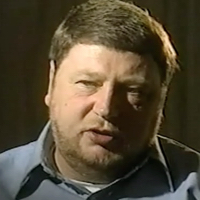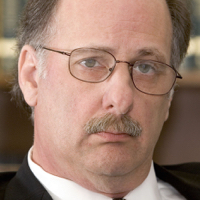Rascals case in brief
In the beginning, in 1989, more than 90 children at the Little Rascals Day Care Center in Edenton, North Carolina, accused a total of 20 adults with 429 instances of sexual abuse over a three-year period. It may have all begun with one parent’s complaint about punishment given her child.
Among the alleged perpetrators: the sheriff and mayor. But prosecutors would charge only Robin Byrum, Darlene Harris, Elizabeth “Betsy” Kelly, Robert “Bob” Kelly, Willard Scott Privott, Shelley Stone and Dawn Wilson – the Edenton 7.
Along with sodomy and beatings, allegations included a baby killed with a handgun, a child being hung upside down from a tree and being set on fire and countless other fantastic incidents involving spaceships, hot air balloons, pirate ships and trained sharks.
By the time prosecutors dropped the last charges in 1997, Little Rascals had become North Carolina’s longest and most costly criminal trial. Prosecutors kept defendants jailed in hopes at least one would turn against their supposed co-conspirators. Remarkably, none did. Another shameful record: Five defendants had to wait longer to face their accusers in court than anyone else in North Carolina history.
Between 1991 and 1997, Ofra Bikel produced three extraordinary episodes on the Little Rascals case for the PBS series “Frontline.” Although “Innocence Lost” did not deter prosecutors, it exposed their tactics and fostered nationwide skepticism and dismay.
With each passing year, the absurdity of the Little Rascals charges has become more obvious. But no admission of error has ever come from prosecutors, police, interviewers or parents. This site is devoted to the issues raised by this case.
On Facebook
Click for earlier Facebook posts archived on this site
Click to go to
Today’s random selection from the Little Rascals Day Care archives….
Click for earlier Facebook posts archived on this site
Click to go to
Today’s random selection from the Little Rascals Day Care archives….
Court finds Hart’s ploy ‘grossly improper’
March 16, 2012
“The appeals court called a maneuver (in Dawn Wilson’s trial) by the chief special prosecutor, Bill Hart, ‘grossly improper.’
“The judges found that Hart had tried to impugn the reputation of Wilson by placing in the courtroom audience two people whose presence was likely to intimidate Wilson.
“Hart never called the pair as witnesses, but… by his actions had implied to Wilson that he intended to use the two people against her in a way that might result in self-incrimination.”
– From the (Norfolk) Virginian-Pilot, May 3, 1995
In 1995 the N.C. Court of Appeals overturned her conviction. And then of course the prosecutors rushed to apologize to Dawn Wilson for their disgraceful vilification.
Beware of jurors wearing deerstalker caps

pbs.org/wgbh/frontline
Dennis T. Ray
April 10, 2016
“(Daniel Green’s) Durham-based defense team says it has new evidence that challenges major parts of the prosecution’s case, while bolstering their request for a new trial. They claim that misleading testimony and misconduct by the prosecutor and jury helped send Green to prison for (the 1993 murder of James Jordan) he did not commit.
“The evidence outlined in court documents includes… a sworn statement from the jury forewoman who admits she did her own investigation of Jordan’s murder, which violated a judge’s order. Paula Locklear says that during the trial, she visited the South Carolina creekside where the body was found and developed her own theory on how the killing occurred. A Charlotte legal expert says her action amounts to a ‘tremendous problem’ for the original case and could get Green’s conviction overturned….”
– From “New questions raised in slaying case of Michael Jordan’s father” by Michael Gordon and Mark Washburn in the Charlotte Observer (April 9) (cached)
Sound familiar? It should! As a juror in Bob Kelly’s trial, Dennis T. Ray not only conducted his own “crime” scene surveys, but also shared a Cosmopolitan article about how to identify child molesters, relayed incriminating claims from a jailhouse snitch and even displayed a supposed “magic key” described by child witnesses.
Unfortunately, Judge Marsh McLelland didn’t consider Ray’s rogue behavior – or that of a second juror, who dramatically revealed during deliberations that he himself had been abused as a child – to be a “tremendous problem.”
In fact, McLelland found precious few reasons to take issue with the prosecution’s case.
![]()
In Guilford County, a DA who paid attention

greensboro.com
J. Douglas Henderson
Nov. 27, 2015
“We cannot bring criminal prosecutions based upon what we think the facts might be, out of our love for animals or in response to public pressure. Down that road lies the wreckage of the Duke lacrosse case, the Little Rascals Day Care case and other prosecutorial misadventures…..”
– District Attorney J. Douglas Henderson, explaining his dismissal of animal cruelty charges against the former director of the Guilford County (N.C.) Animal Shelter
An animal shelter isn’t a day care center, euthanasia isn’t “satanic ritual abuse” and Henderson’s decision hasn’t met with unanimous community support, but how encouraging to see a DA who seems to have learned appropriate lessons from two of the state’s most notorious “prosecutorial misadventures.”
If only reality had offered such vivid details….
 Jan. 9, 2013
Jan. 9, 2013
“One question that arises from studies on children’s suggestibility is whether they document false memories or merely false reports. Do children really believe that the fictional events happened? Or do they merely say so to please the interviewers?
“Consistent with the false memory interpretation, approximately one-third of the children in these studies continued to insist that particular events had really happened to them even after they were told those events were not real….
“Lacking any obvious motivation to lie, these children appeared to have developed false memories, perhaps confusing the products of their repeated attempts to visualize the events with the products of direct experience….
“Professionals were no better than chance at discriminating false from true reports. The credibility of a child’s account was related to the amount of perceptual detail mentioned in the child’s narrative. The more details, the more professional tended to believe the narrative, regardless of whether it was true.”
– From “Remembering Trauma” by Richard J. McNally (2003)
To better understand how the Little Rascals therapists went so wildly astray, give that last paragraph a second reading. “Professionals were no better than chance at discriminating false from true reports” – and they were mesmerized by the “perceptual detail” in those tales of sharks and spaceships.











0 CommentsComment on Facebook